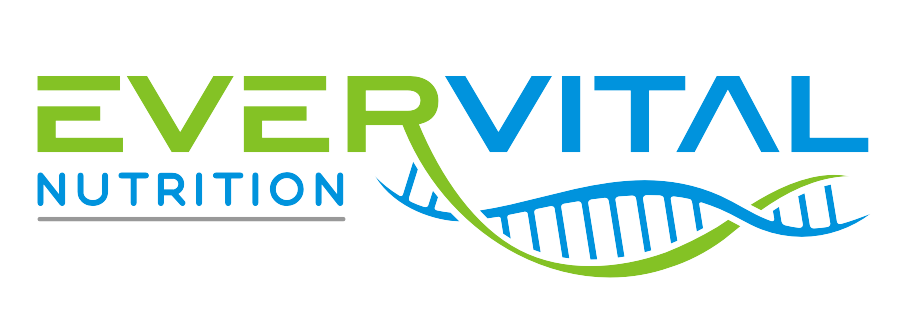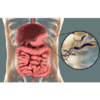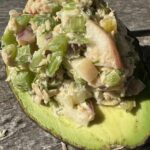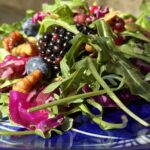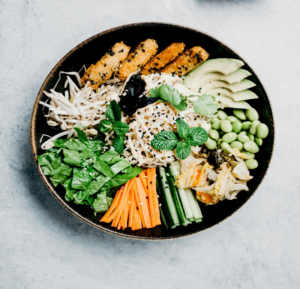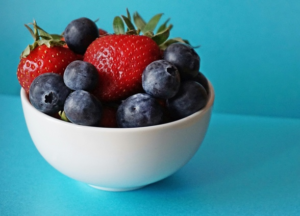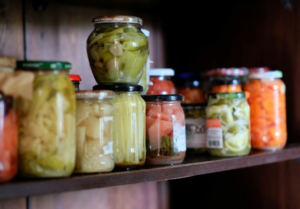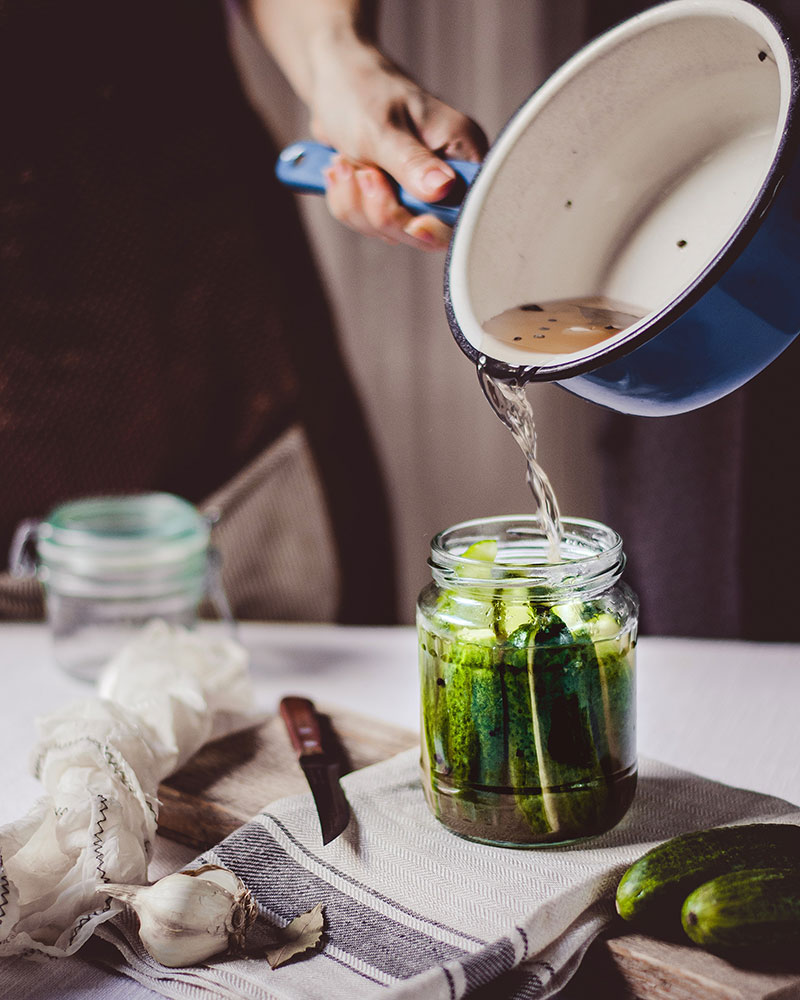
Many people take probiotic supplements in an attempt to preserve and replenish their gut flora. The global probiotics market is valued at $58 BILLION, so chances are, you’ve probably taken a probiotic at some point, or maybe you’re currently taking one.
But, are they worth the hype… or is there something better?
The short answer… unfortunately, probiotic supplement pills are not as effective as fermented foods in repopulating beneficial bacterial strains that have been depleted in the gut microbiome. There, I said it.
Fermented foods offer unique gut health benefits that commercial probiotic supplements just don’t, like: increased digestibility of foods, natural limitation of harmful pathogens, increased nutrient bioavailability, greater bacterial diversity, and production of bioactive compounds that confer health benefits.
So, let’s talk about the best foods to reduce gut inflammation, promote optimal digestion, and help those beneficial gut bugs thrive again.
Diet and Inflammation: What Causes Gut Inflammation?
Your diet has a super strong impact on your gut health and levels of inflammation. What you eat really impacts whether you feel great and energetic every day or you feel like complete garbage.
When your digestive system becomes chronically inflamed, your overall health suffers.
Here’s why…
When your body notices signs of intrusion, like from a virus, bacteria, allergen, or even an injury, it reacts by swarming the area with immune cells. These cells surround and attack the intruder, causing swelling, redness, and sometimes an increase in your body temperature.
This is the pattern of inflammation, and it’s beneficial for healing if that series of events happens when you cut your finger, but not so awesome when that inflammation is in response to overgrown bacteria or a food because this is a more chronic situation.
What you eat plays a large role in how much inflammation is present throughout your body.
Inflammatory foods include:
- Processed meats (bacon, hot dogs, lunch meat)
- Highly processed snacks (chips, cookies, crackers, protein bars)
- Refined grains (white bread, pasta, white rice, breakfast cereals)
- Soda
- Packaged foods with lots of added sugar
- Alcohol
- Seed oils (canola, corn, cottonseed, grapeseed, soybean, safflower, sunflower)
This list includes popular foods that many people eat every day. However, anything that is highly processed with lots of added sugar and salt can have harmful effects on your gut health.
*Note the absence of red meat in our inflammatory food list above. We’ll address this highly controversial topic in our next blog. Stay tuned!
Probiotics for Healthy Digestion
Your digestive tract is full of healthy bacteria that help you break down food, produce hundreds of bioactive compounds like short-chain fatty acids and B vitamins, and help to absorb nutrients. When the delicate balance of your gut bacteria is thrown off, your overall health suffers.
Beneficial bacterial strains are found in commercial supplements and fermented foods. The goal is for them to boost populations of beneficial gut bacteria to help keep your gut microbiome balanced.
These beneficial bacterial strains also help reduce inflammation in your digestive system. When everything is flowing smoothly (wink wink), you can enjoy better health throughout your entire body, and not suffer with symptoms like constipation and bloating.
Supplements
Many commercial probiotic supplements contain the same few live bacterial strains to boost digestion. Typically, these are Lactobacillus, Bacillus, and/or Bifidobacteria species, which are beneficial bacteria, but will only be beneficial to YOU if your gut microbiome is low in these strains.
And… Most people don’t know that by the time you consume your supplements, many of the colony-forming units (CFU) in these supplements may have died. Died! If they’re dead, you don’t get those purported digestive benefits from these supplements.
There’s also some debate about whether probiotics taken in supplement form make it through the acidic stomach environment and even more uncertainty about whether these bacteria actually colonize and set up a home in the gut.
While probiotics are generally considered to be safe, there are a few potential side effects that you should be aware of before you start taking them. These side effects include bloating, gas, and stomach pain. Probiotics may also interact with certain medications, such as antibiotics. It’s important to speak with your doctor before you start taking probiotics.
Probiotic supplements are not regulated by the U.S. Food and Drug Administration (FDA), so it is important to do your research to find a safe and effective product.
Fermented Foods
OK, so probiotics in capsule form may not live to see the gut, and then they may just be pooped out without repopulating your gut. So, how do you get their benefits without these risks?
The secret? Fermented foods!
Yes, you can help support the growth of healthy gut bacteria by eating fermented foods. Fermented foods are rich in probiotics, which are live microorganisms that have health benefits when consumed.
Fermentation occurs when small organisms, like bacteria and yeast, chemically break down substances. Fermented foods have been around for centuries and have been used for their health and medicinal properties. Along with contributing to gut health, they’re a great source of vitamins, minerals, and antioxidants. Fermented foods are easy to make at home and are a great way to add healthy and nutrient-rich foods to your diet.
Generally, fermented foods naturally contain far more live bacterial strains than probiotic supplements. When you consume fermented foods and drinks, you add to the populations of healthy gut bacteria that aid your digestion, and they’re more likely to actually benefit you by colonizing the gut longer-term.
What Is the Best Source of Probiotics?
Since fermented foods are much more effective at creating diverse populations of bacteria in your digestive tract, consider the following sources of natural probiotics:
- Sauerkraut (only when “live cultures” is stated on the label)
- Pickles (with “live cultures”)
- Kefir (coconut or water kefir if avoiding dairy)
- Yogurt (including dairy-free versions)
- Kimchi
- Kombucha (watch the sugar)
- Apple cider vinegar with the mother
- cheeses that have been aged but not pasteurized
Add some of these staples to your diet to reap the gut health benefits and improve your overall well-being.
When To Avoid Fermented Foods?
Although fermented foods can be powerhouses for gut health, for some people, they are a recipe for feeling terrible. We’ve described how essential that healthy balance of organisms in the gut is in regards to optimal health and wellness. You got that, right?
So, when the gut microbiome is imbalanced, even those gut-friendly bacteria can become a problem for some people. Most bacteria in fermented foods are lactic acid-producing bacteria, and these guys can be a problem if you already have an overgrowth of these bacteria in your digestive system.
Also, people who have small intestinal bacterial overgrowth (SIBO) or who follow a low FODMAP diet may find that fermented foods can stimulate the bacterial overgrowth in their small intestine, causing discomfort. In this case, it’s best to avoid fermented foods until the gut is rebalanced.
Many fermented foods also naturally contain histamines, which may accumulate in the body and pose problems for individuals who are intolerant to histamines, including those with exocrine pancreatic insufficiency or mast cell activation syndrome. In these cases, histamine-containing foods should be avoided.
Do We Ever Recommend Probiotics?
Yes, do sometimes recommend probiotic supplements, but we recommend them in a very targeted way. Some of the beneficial bacteria are more difficult to regrow on their own. When our clients are low or depleted in these certain species, we will definitely supplement those strains whenever possible. Akkermansia muciniphila is one of those species of bacteria that is super tough to repopulate on its own when it’s low or absent. However, supplementing Akkermansia and feeding it well will help it to thrive!
EverVital Nutrition Gut Health Assessments
At EverVital Nutrition, we perform thorough gut health analyses to give you the full picture of your digestive health.
The only way to permanently heal your chronic gut symptoms is to test your gut microbiome so you know exactly what to treat. If you want to fast-track your gut health, contact us today!

